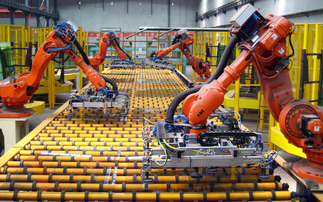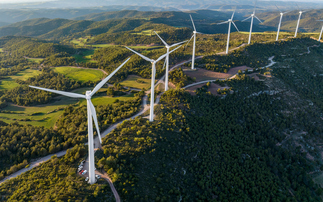It is something a growing number of companies are exploring as they invest in their renewable energy supply, says E.ON's John Martin - but how easy is it to generate your own, clean, renewable energy in practice?
The notion of generating your own energy is a process that has become much more feasible in recent years, as the price of renewable energy has fallen and financiers, regulators and companies have become more comfortable with the idea of distributed generation.
Onsite clean power generation can use a number of different technologies, depending on the individual situation of your facilities. These include solar, wind, hydro-electric and biomass. The most common is solar panels, which can be easily installed utilising a modular approach, according to E.ON's product manager John Martin. But of course it is not for every business, he explains. "If you have spare roof space or land nearby, or even a car park with carports, they are easy to install," Martin says. While the price of generated energy is not quite currently competitive with the grid, you get price certainty and avoid future price fluctuations."
Whilst the benefits of taking steps to be in charge of your own energy provision are clear, it pays to be thorough in your preparations for installing onsite energy solutions, he points out. "As well as your own energy profile, you need to understand the costs associated with network reinforcements on your local energy network, what permitting and planning will be necessary and the optimal technology options," he explains. "You need to research the market because the costs of technologies are falling all the time but different options have different capabilities."
The carrot and the stick
And what about costs? Do you want to fund it out of cashflow or do you need to look at the finance options available? One of the key challenges to getting your company to generate its own power is getting buy-in from senior management. "They often say it's a good idea environmentally, but it's too expensive," Martin says. "However, clean energy options are getting closer to economic parity all the time, and clean energy can give you greater certainty over your costs, allowing you to reduce risk and cut your emissions at the same time. The pressure to go Net Zero is only going to increase. It makes sense to start now when there is more carrot - than to have to do it later when there is more stick."
To read the full article, download the free and exclusive 'The Race to Net Zero' guide brought to you by BusinessGreen. Click here.
This article is sponsored by E.ON.








